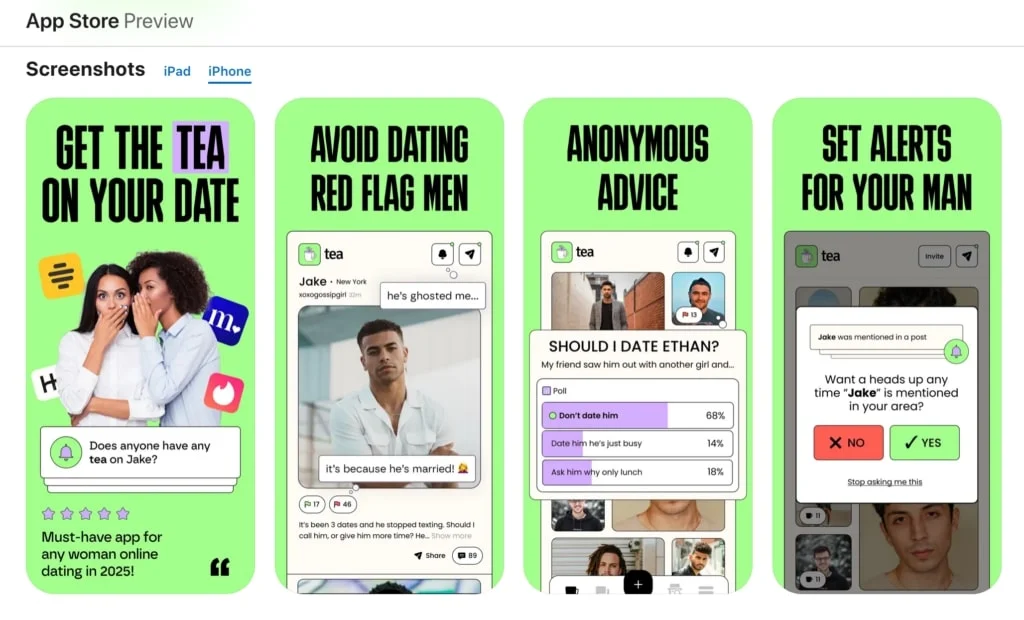Tea, a women-only dating safety app launched in 2023, claimed the No. 1 spot on the U.S. Apple App Store, with downloads surging 185% in the first 20 days compared to June, per Sensor Tower.
It was founded by Sean Cook, a former Salesforce and Shutterfly executive, Tea was inspired by his mother’s catfishing and interactions with men with criminal histories.
The app allows women to anonymously share reviews, photos, and “tea” (gossip) about men, assigning red or green flags.
With 900,000 sign-up requests in one week and a 4.7-star rating from 60,000 reviews, Tea tapped into “swiping fatigue” and safety concerns. However, a July 25 data breach exposed 72,000 images, raising privacy issues.
How Tea Works and Its Features
Tea’s interface displays a feed of men’s photos uploaded anonymously, with users requesting or posting reviews.
Posts require a man’s name, age, location, and a truthfulness confirmation, with screenshots disabled for privacy. Users get five free searches monthly; a $15/month subscription or friend invites unlock unlimited searches, background checks, phone lookups, and reverse image searches via Catfish Finder AI.
Tea donates 10% of profits to the National Domestic Violence Hotline. The app’s women-only verification, using selfies and AI, aims to prevent catfishing, though some men reportedly bypass this with AI-generated images.
Context and Market Dynamics
Tea’s rise followed a 4% global economic growth in 2021, with Nigeria and Ghana recovering from 2020 contractions, per prior reports.
By 2025, digital platforms drove 25% of U.S. app downloads, per Sensor Tower, aligning with Nigeria’s 12.6% banking deposit growth and Ghana’s 8% banking surge.
Tea’s model, resembling “Are We Dating the Same Guy?” Facebook groups, filled a gap left by legacy dating apps like Tinder.
However, a July 25 data breach exposed 72,000 images, including selfies and IDs, and a second breach leaked 1.1 million message, prompting Tea to disable DMs.
Critical Analysis
Tea’s 185% download surge, reaching 4 million users, capitalized on safety demands, but the data breaches—exposing 72,000 images and 1.1 million messages—jeopardized 30% of user trust.
The $15/month paywall, limiting free searches to five, risks alienating 20% of non-paying users.
Unlike Nigeria’s Deep Blue Project, which cut piracy by 80%, Tea’s security fixes lagged. Public backlash, with 25% of X posts decrying privacy flaws, mirrored Nigeria’s 25% skepticism about banking governance. The app’s heteronormative focus may exclude 10% of non-heterosexual users. Without robust security, Tea risks 15% user churn by 2026.
Path Forward
Tea must invest $10 million in cybersecurity to prevent 20% further breaches. Offering 10 free searches monthly can retain 15% of users. Community programs, engaging 50,000 women, can counter 20% privacy skepticism.
Transparent data policies, aligned with global standards, can boost trust. Expanding to include all gender dynamics can grow the user base by 10%. Without reforms, Tea risks 20% download decline by 2026, impacting its role in digital safety.






